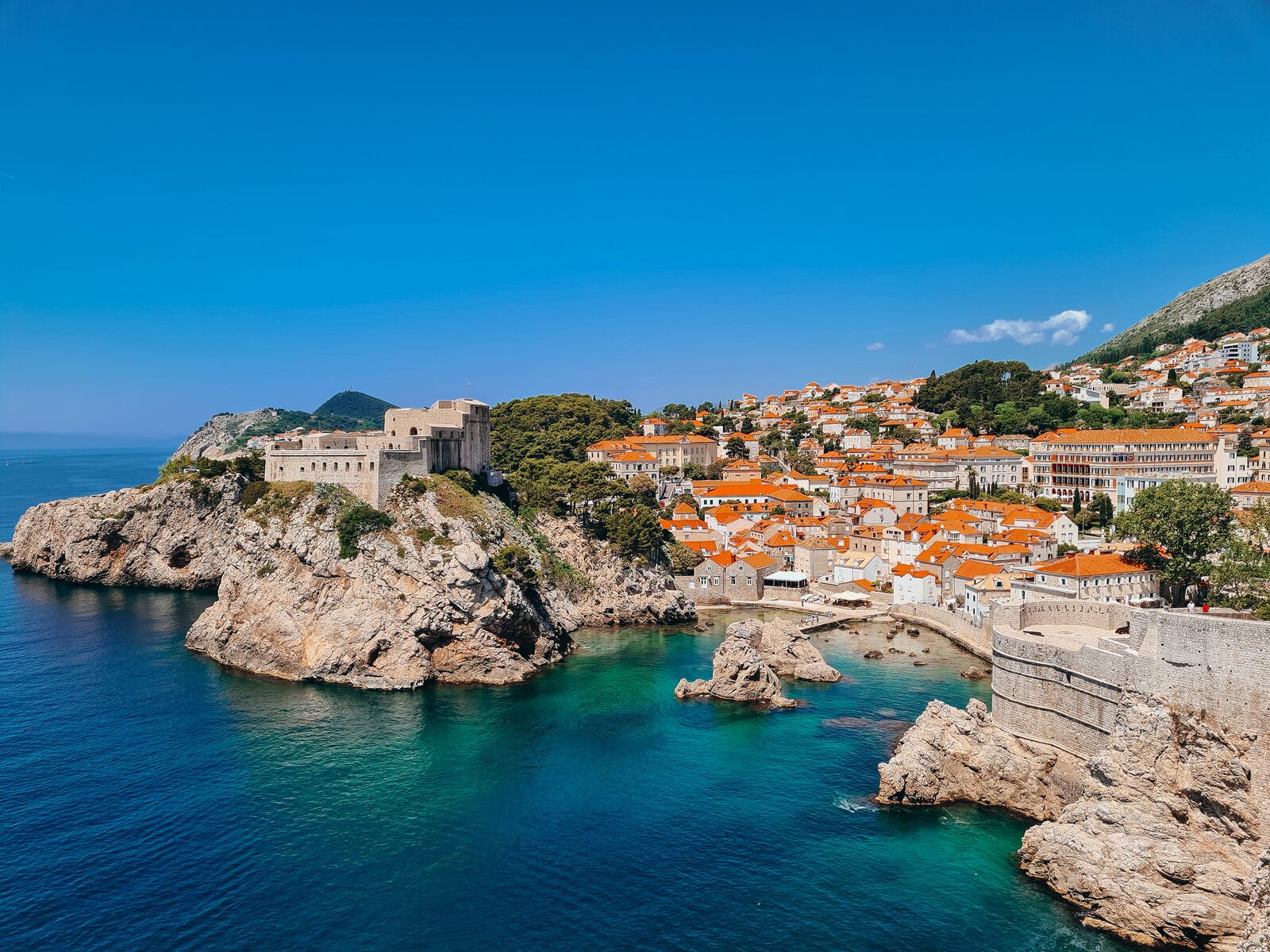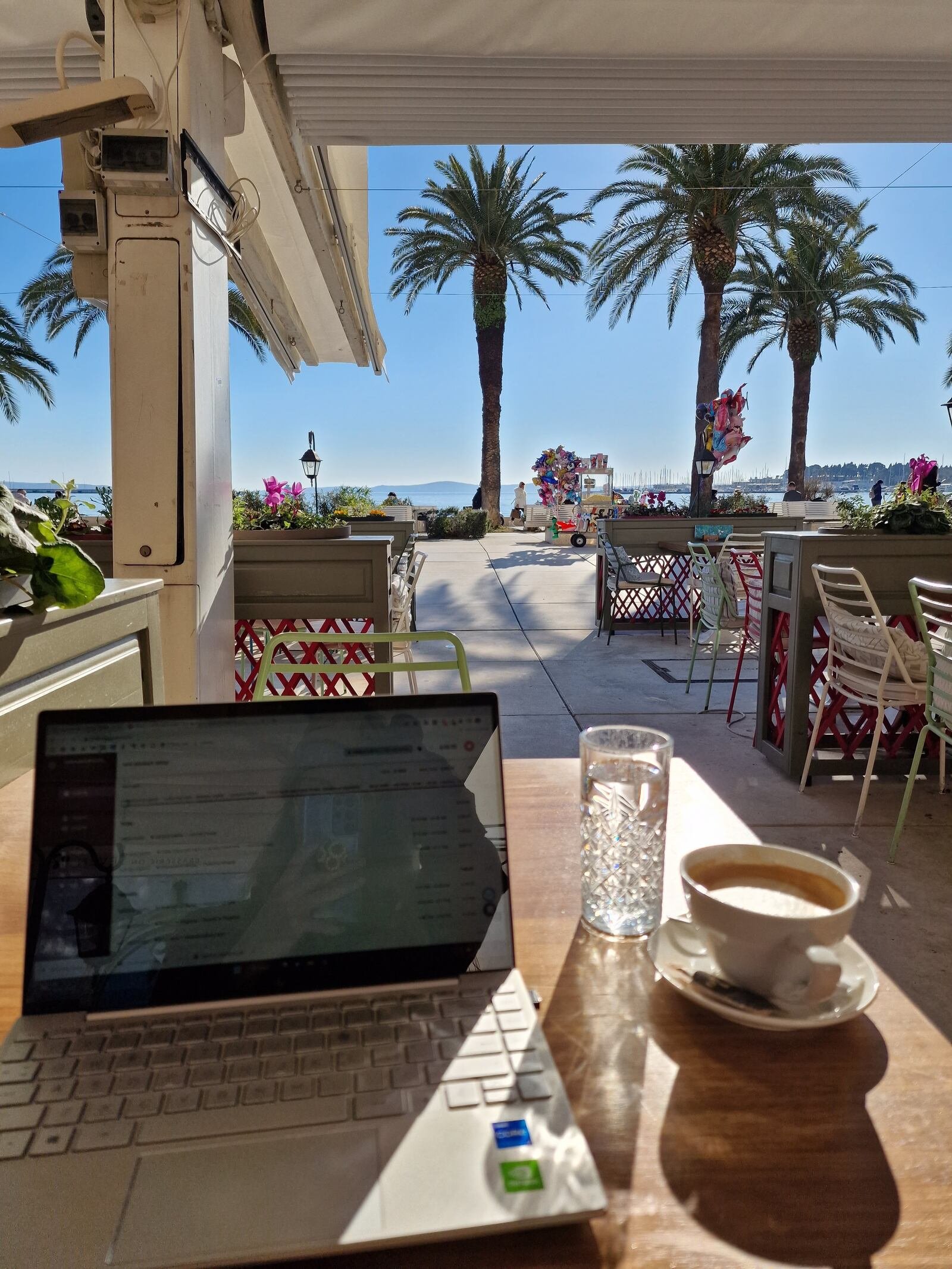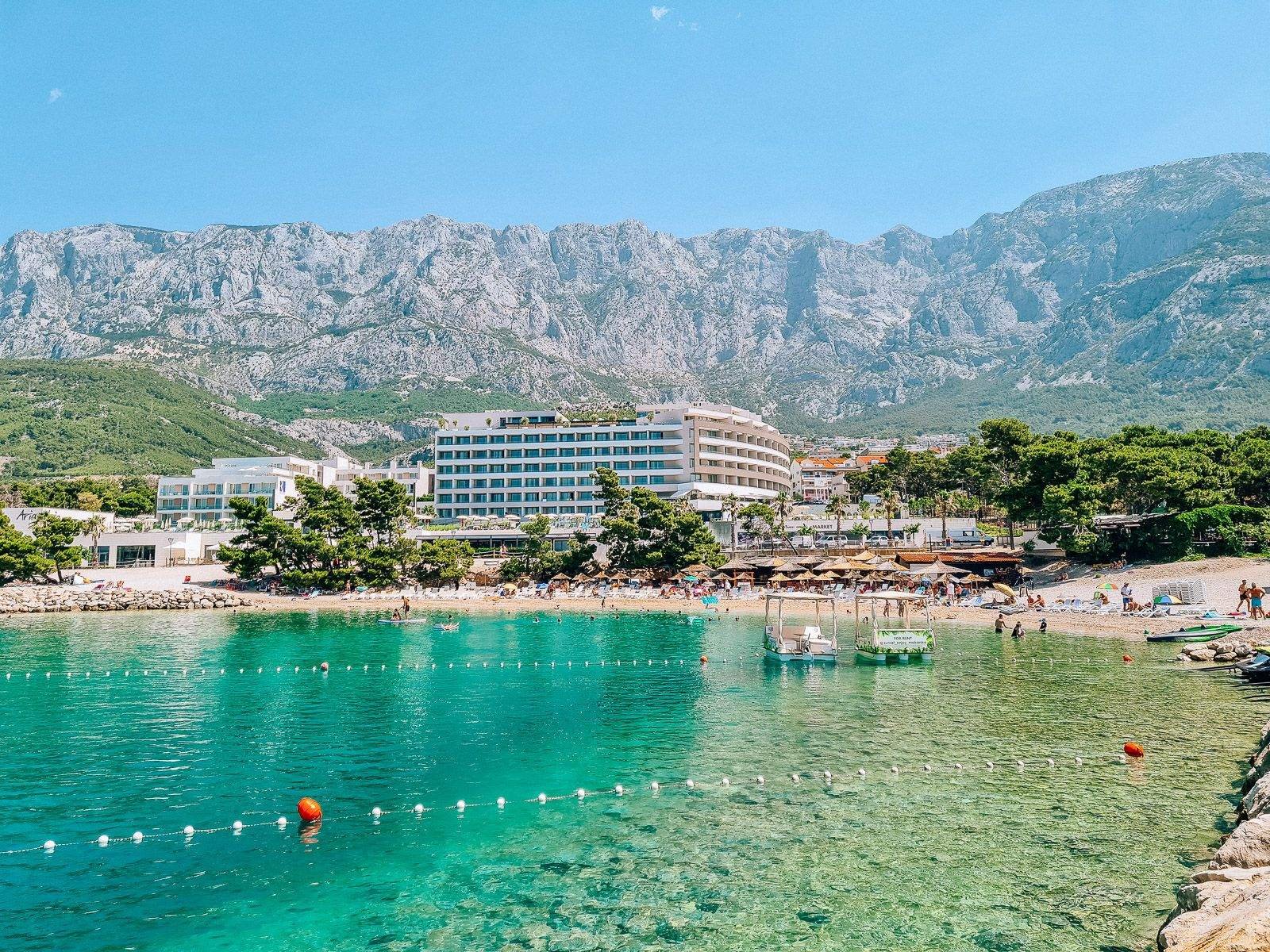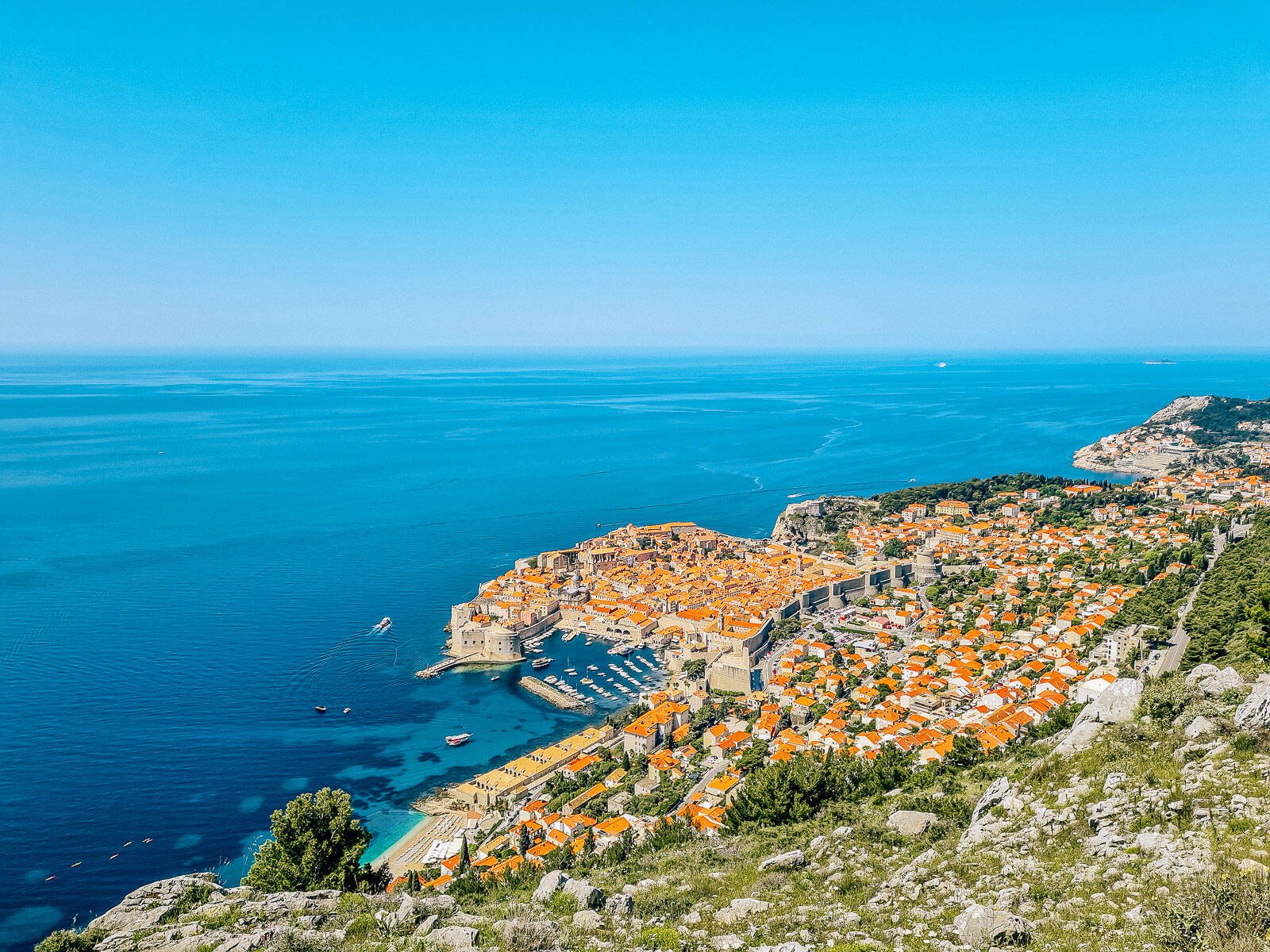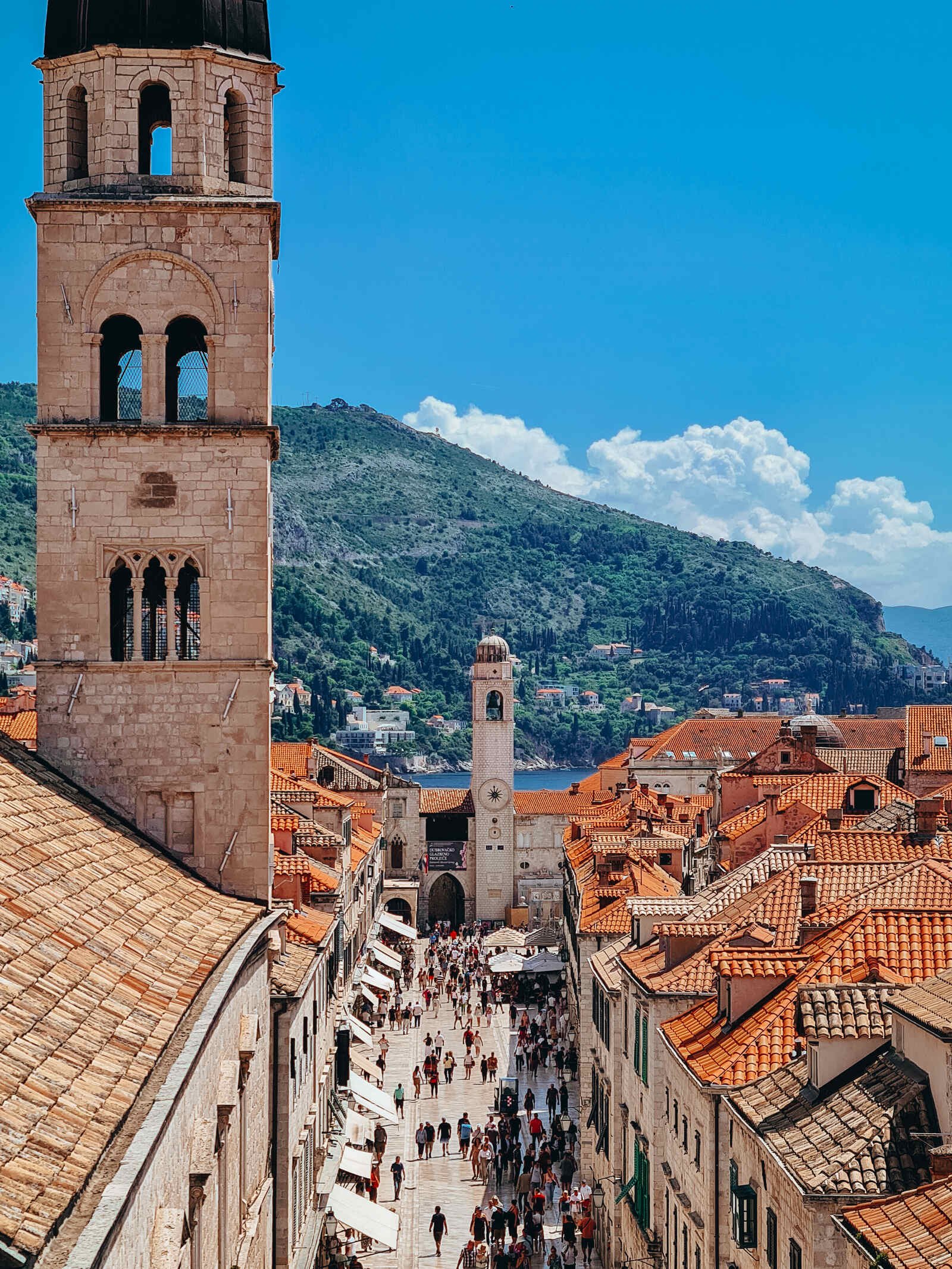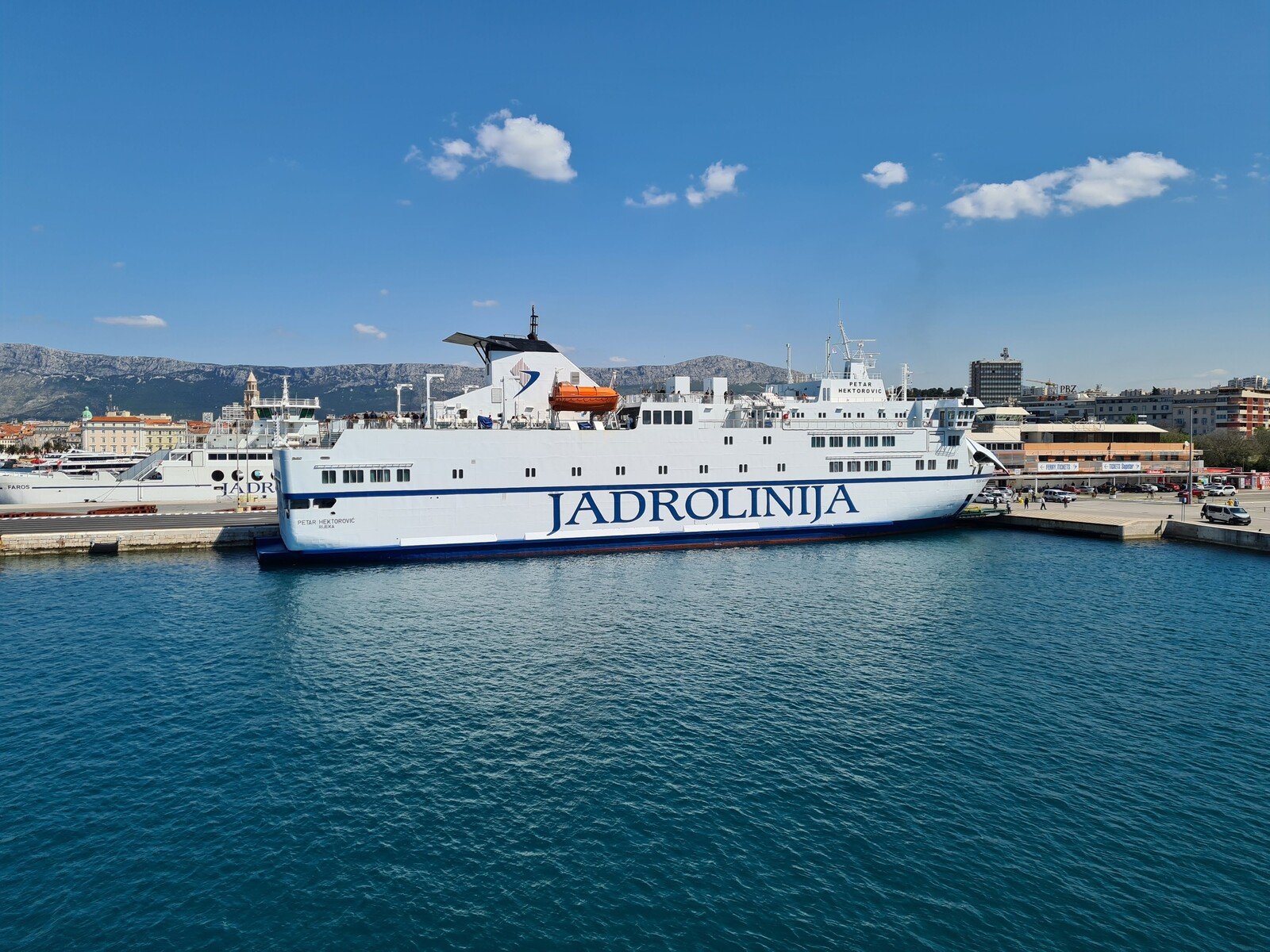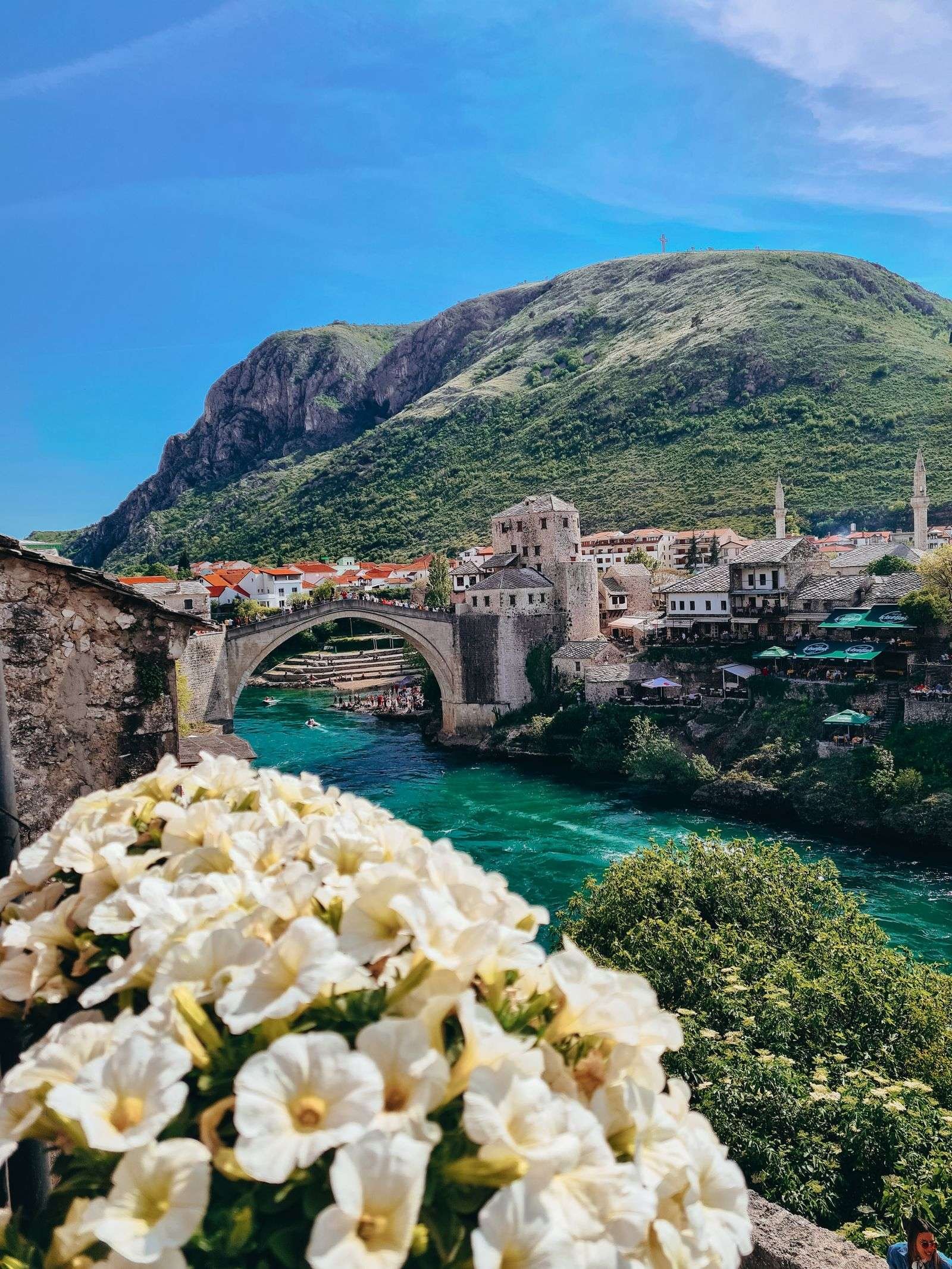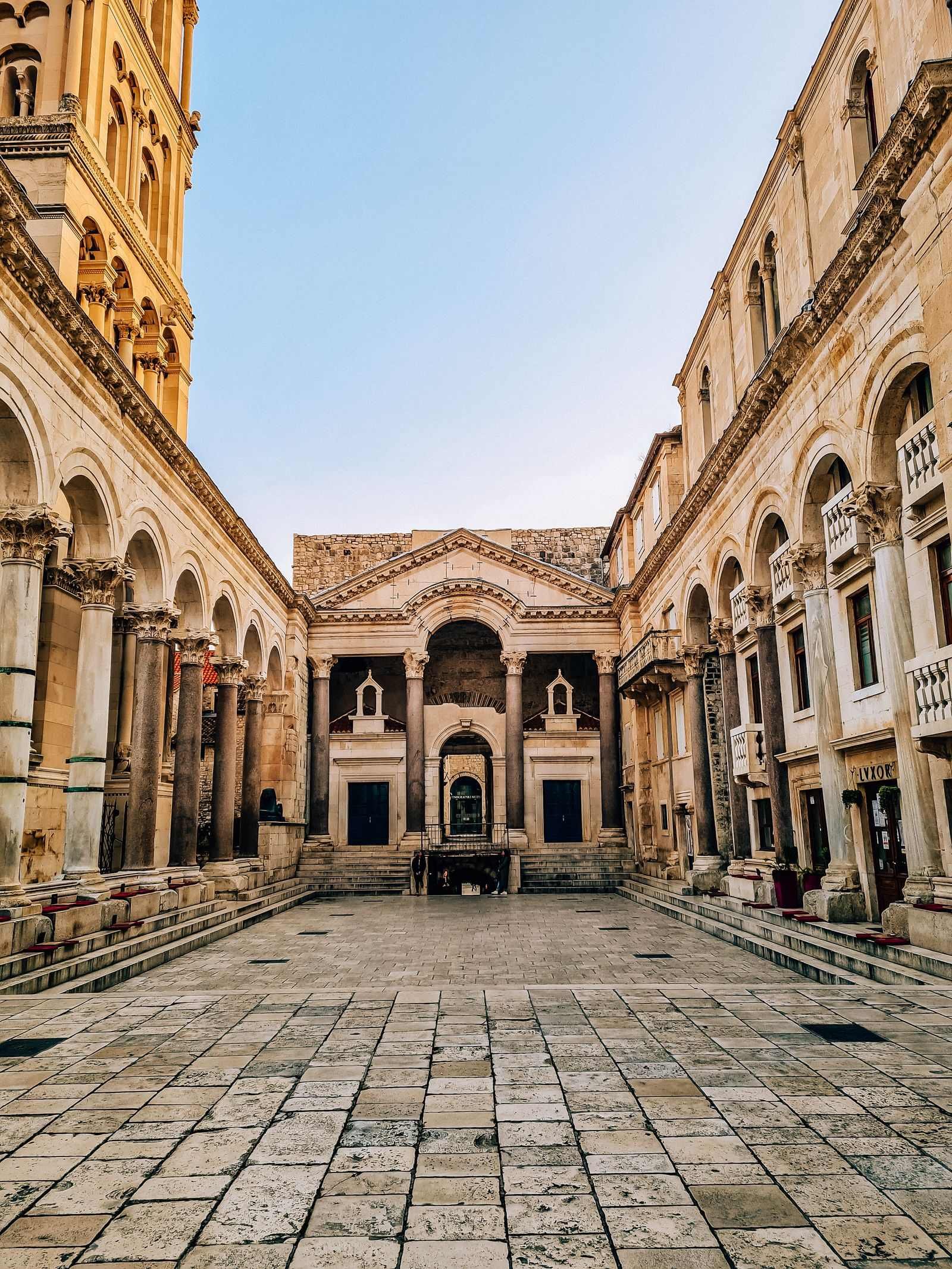I’ve lived in Croatia for over a year as a digital nomad and it’s fair to say that I’ve learnt a lot about the country, its culture and its people, as well as a few Croatia travel tips along the way.
I also think there’s a lot to learn about any country when you’re visiting as a tourist. So it’s often good to get a perspective from a visitor who has spent a considerable amount of time there.
In this article I’m sharing my Croatia tips and Croatia travel recommendations so you can plan the best trip possible to Croatia.
Looking for more Croatia holiday tips?
Dubrovnik, Croatia
Disclosure: This post may contain affiliate links, which means I may receive a commission if you click a link and purchase something. While clicking these links won't cost you anything, they will help me to keep this site up and running! Check out the full disclosure policy for more details. Thank you so much!
Top Croatia travel tips
Restaurant on Split Riva
1. Carry cash
While Croatia is now part of the Eurozone, cash is still a big feature in day to day life even in major cities.
This is always top of my Croatia tips for tourists and I'm often asked "Can I use my credit card or debit card in Croatia?"
The answer is yes, in some places. Major hotels, large restaurants, hotel and restaurant chains, large supermarkets and grocery stores will all usually accept cards.
But many smaller, independent businesses still only accept cash. Cafes and small restaurants are most likely to not accept cards, as well as some tourist businesses like boat tours.
Some places may accept card but charge an additional fee - make sure you ask if there is a card fee before using your card.
My top Croatia travel tip for currency would be to take a fee-free credit or debit card with you (Revolut, Monzo and Chase are good in UK/Europe, Charles Schwarb is popular in the US)
Once there, you can take cash out of an ATM with your fee-free card, only the ATM will charge a fee and this is usually €5 per withdrawal so try to only withdraw once!
Top Croatia travel tip: Avoid Euronet ATMs! This is not just a travel tip for travel to Croatia, it's my tip for everywhere in the world - Euronet is not a bank, it's a business and their fees are often much higher!
2. Pack water shoes
While Croatia's pristine Adriatic Coast is world famous with crystal clear azure waters, most of the beaches in the country are actually pebbles!
Very few beaches in the country are sandy, or if they are then they're a man-made beach like Bacvice Beach in Split.
The pebbles vary in size depending on where you are but they're never fun to walk on so I suggest taking water shoes or water sandals on your trip so you can roam around in the water and on the beach freely.
Top Croatia travel tip: You can buy water shoes once you're there but they will likely be more of a premium. I'd suggest buying a pair like these on Amazon.
3. Visit outside of the summer season
Croatia is now one of the most popular destinations in Europe meaning the peak summer season is incredibly busy and expensive - I think many visitors are now shocked by the prices during the summer as they still associate Croatia with the Balkans and cheaper prices.
Those prices do still exist but not during June-August. May or September and October are the best times to visit for cheaper prices and fewer crowds, October is also when the sea is warmest.
Prices generally start to increase after Easter (usually April) so April and May or shoulder seasons with the biggest price increases coming in June, July and August.
Of course coming in April/May does risk not having as good weather. Our first April in Croatia was gloriously warm and sunny, our April in Croatia this year was stormy, rainy and cold - it's very hard to predict when you're on the coast and in a mountainous region!
If you're not desperate to visit Croatia in good weather, I'm a huge fan of Croatia in the winter, it's so cheap, so quiet and feels more local and authentic. Coastal resorts are usually closed at the end of October to Easter, so you'd be looking at trips to the main cities- Split, Zadar, Rijeka, Zagreb, Pula.
Top Croatia travel tip: visit in October for a beach trip with fewer crowds, lower prices, better chance of good weather and warm sea.
Bonus tip: visit Zagreb Christmas Market in December - it's been awarded the best Christmas market in Europe for several years in a row!
4. Don’t just visit Split and Dubrovnik
Similar to my point above but if you're hoping to find cheaper prices and fewer crowds during the peak season, don't just visit Split and Dubrovnik.
While both cities are beautiful and I highly recommend adding them to your Croatia itinerary, I'd recommend quieter regions and islands if you're looking for a more relaxed pace with fewer crowds.
Top Croatia travel tip: Pag, Losinj, Brac, Rovinj, Omis, Makarska Riviera, Solta, Rijeka, Zadar region and Sibenik would be some of my recommendations for beating the crowds.
Dubrovnik
5. Check for national holidays and religious days that may impact your trip activities or costs
Croatia is a patriotic and predominantly Catholic country, so there are several holidays that are celebrated and taken very seriously which often means businesses are closed and can impact your travel plans.
The Croatian government also passed a new law in the Trade Act in 2023 requiring businesses to close on holidays which unfortunately included the Day of Victory and Homeland Thanksgiving holiday on Saturday 2nd August - which is smack bang in the middle of tourist season. There has even been an outcry from locals because of the impact of income during the main work season for locals.
I'm not suggesting that you don't plan your trip over a Croatian public holiday, but just do your research and be prepared - maybe plan a relaxed beach day or day by the pool for that day on your trip.
Top Croatia travel tip: Some holidays are HUGE in Croatia and there can often be exciting events happening such as the Victory Day parade, Festival of Light or even big events for when their national football team is doing well! Check tourism board websites and events for your destination as it can be a fun experience!
6. Avoid cruise ship docking times
Stradun, the main street in Dubrovnik in May
This is one of the travel tips to Croatia which is only applicable to cruise ship ports such as Split, Dubrovnik and Zadar. However I would say due to the tiny size of Dubrovnik, this tip is most applicable to Dubrovnik.
Many people think Dubrovnik is a large city, or even the capital city of Croatia, it’s become so well-known thanks to Game of Thrones, but actually there are only about 30,000 locals living there. During the peak summer season, the number of people in the city rises to over 200,000! And on days that cruise ships dock, this adds another 5000+ people to the tiny city - all of them wanting to see the old town on their day shore excursion.
When you see the size of Dubrovnik, you’ll see why this is a problem, the small walled city can only accommodate so many people! On the days that cruise ships are expected I would highly recommend not heading into the old town. Instead, discover some of Dubrovnik’s hidden gems, activities outside the city walls or other destinations along the coast such as Cavtat, Lokrum Island or even a day trip to Montenegro.
Top Croatia travel tip: Check the cruise ship schedule here.
7. Be aware of first-come-first-served on popular ferry routes
Split ferry port
This is another issue that’s arisen with the increasing popularity of Croatia and visitors wanting to take a trip to one of the beautiful islands off the coast.
Some major ferry lines don’t allow booking in advance during peak season and operate on a first–come–first–serve basis - particularly the car ferry routes to Hvar or Korcula.
Top Croatia travel tip: If you’re a foot passenger, I’d recommend either going to the port the night before to buy a ticket for the following day (tickets are valid for any journey that day, rather than just a specific time). Or go first thing in the morning to get your ticket for the next available sailing.
8. Remember being in the EU now means Croatia counts towards your Schengen days
This tip is only applicable if you are a non-EU resident and plan to spend a lot of time travelling in the EU or are taking multiple trips in a 6 month period that may amount to over 90 days.
This includes anyone without an EU passport including US travellers and UK travellers.
Being in the free-movement Schengen zone now means that Croatia is part of the 90 days in 180 days rule which states you cannot spend more than 90 days inside the Schengen Zone within every 180 day period (6 months).
For digital nomads, long term travellers, backpackers, RVers, caravaners or van lifers this can be an issue and is definitely something to keep on top of you.
Use this Schengen days calculator to make sure you don’t go over your allowed days.
Mostar, Bosnia and Herzegovina
Top Tip: Montenegro, Bosnia, Albania, North Macedonia, Serbia, Georgia, UK and Ireland are all great non-Schengen options if you need to hop out and reset your 180 days allowance.
9. Behaviour in public places is under scrutiny
Diocletian Palace, Split
Again, like many of the tips on this list, this tip has come about because of the increasing popularity of Croatia. Unfortunately with more people comes more chances of those select few that ruin it for everyone.
In the past 3 years, major tourist hubs like Split and Dubrovnik have cracked down on disrespectful behaviour from tourists in the ancient cities which are so historically significant and yet tourists are seen vomiting, urinating, graffiti and more all over these UNESCO World Heritage Sites.
This shouldn’t be a tip, it should be common sense but be mindful of your behaviour. Split is now issuing fines for anyone seen behaving disrespectfully, this also includes not wearing a top in the historic and religious buildings in the Diocletian Palace.
Dubrovnik recently tried to ban wheeling suitcases in the old town due to the noise they create, they’ve now backtracked on that but it gives you an idea of the extremes that Croatian cities feel they have to go to to protect their local heritage sites.
Top Croatia travel tip: being on vacation doesn’t excuse bad or disrespectful behaviour!
10. Croatians dress smartly
This was probably one of the biggest surprises for me while living in Croatia - not that locals dressed smartly, but what they chose to dress smartly for. In Western Europe or the US, it’s common to go out in athleisure for a morning walk and coffee. Perhaps walking the dog in yoga gear or sports leggings.
In Croatia, going out for coffee, breakfast, a casual hang out at a cafe, walking the dog - basically any social occasion, Croatians dress up. I’m talking heels and bodycon dresses for coffee at 11am on a Sunday. Designer-labelled two pieces and sunglasses for the men.
I honestly felt underdressed every time I went for a walk or to grab coffee! Obviously there is no need to change the way you dress to be comfortable but it’s definitely an interesting observation!
11. Explore in the early morning or evening to avoid midday heat
Primosten
At the peak of our first summer in Croatia, temperatures reached over 40 Celcius (over 105F). It was a struggle to go about our day to day and then we’d see people getting heat stroke walking the walls in Dubrovnik or up the mountains in Makarska.
While there is more of a breeze on the coast, the midday heat is dangerous and I’d really recommend doing your main activities in the morning or later afternoon - especially if you have young children or anyone in your group has a health condition.
Top Croatia travel tip: crowds are less in the mornings and evenings so this is often the best time to visit popular attractions.
12. Be aware that many places still allow smoking inside
This is more something to be aware of, especially if you’re like me and have asthma or another respiratory disease which can be easily triggered.
Smoking is still very common in Croatia and is still permitted inside businesses as long as they don’t serve food. This means a lot of cafes and bars will allow smoking inside. Even if you’re eating outside, there are no restrictions on smoking in outdoor eating areas or within a certain distance of a business like there is in the UK.
This is just something to bear in mind if you have young children, elderly people or others with a respiratory condition in your group.
13. Rules for driving in Croatia between October and April
If you plan to hire a car in Croatia and you’re visiting between the months of October-April, it is mandatory to have headlights on at all times when you drive - regardless of whether it’s daytime or nighttime - they must be on. They do enforce this as I was stopped by the police for not realising this rule!
Another rule to be aware of in the winter months is the requirement to have winter tyres or all-season tyres on your vehicle and to carry snow chains. This is less enforced on the coast as snow is rare. But once you cross the mountain range and are driving in the interior of Croatia, there is a significant amount of snow throughout winter and it’s extremely dangerous to drive without these.
Top Croatia travel tip: If you’re renting a vehicle then the rental agency should provide these things but I’d recommend checking with them just in case! If you’re driving your own vehicle, check Croatia driving requirements here.
14. Croatia toll roads
While on the topic of driving, if you’re planning a Croatia road trip you’ll most likely find yourself on some of the major motorways that run along the coast (E65) and that connect the coast to the interior (E71).
Motorways in Croatia have toll entrances and exits so you pay for the amount you drive on, rather than a flat rate.
When you enter the toll road, you press the button and take a ticket. When you exit the toll road, you insert the ticket and make a payment. Toll payments can be made with either cash or card at the toll booth.
It will cost you around 15 euros to get to Dubrovnik and about 25 euros to get to Zagreb.
15. Tipping is not compulsory but you can tip 10-15% if you receive great service
Many people ask me about tipping in Croatia, particularly US visitors who are wondering about tipping etiquette when traveling to Croatia.
Tipping is not compulsory in Croatia as workers receive a living wage, however like much of Europe, tipping for great service is accepted and usually around 10-15%.
Croatia top travel tip: Croatia tipping should be in cash. Most places do not have the facility to tip by card and it won’t guarantee that the tip goes to the intended member of staff.
16. Use Uber or Bolt rather than a metre taxi
Unfortunately taxi scams are becoming more common in Croatia and I’ve seen more reports of visitors paying 100 euros for a taxi from Split airport to the city. Even my own parents got caught by it in Dubrovnik with a 7 minute taxi ride they were charged 20 euros!
You can easily download the Uber or Bolt app on your phone and by using these services you pay a pre-agreed fare via the app rather than relying on the goodwill of taxi drivers or “faulty metres”.
A taxi from Split airport to the city shouldn’t cost more than 30 euros, in the low season, I’d be able to get to the airport for 15 euros!
While not everyone loves the ride hail apps, they are the best way to make sure you’re not being ripped off for a taxi ride in Croatia! Use Uber or Bolt instead of "metre" taxis
Summary: Top tips for visiting Croatia
Whether you’re looking for tips for visiting Dubrovnik, Split Croatia travel tips or just some general tips for travelling in Croatia - I hope this guide has given you some information and insight into etiquette, travel budgeting, scams to avoid and ways to make your trip to Croatia more enjoyable!
Pin to save for later!
